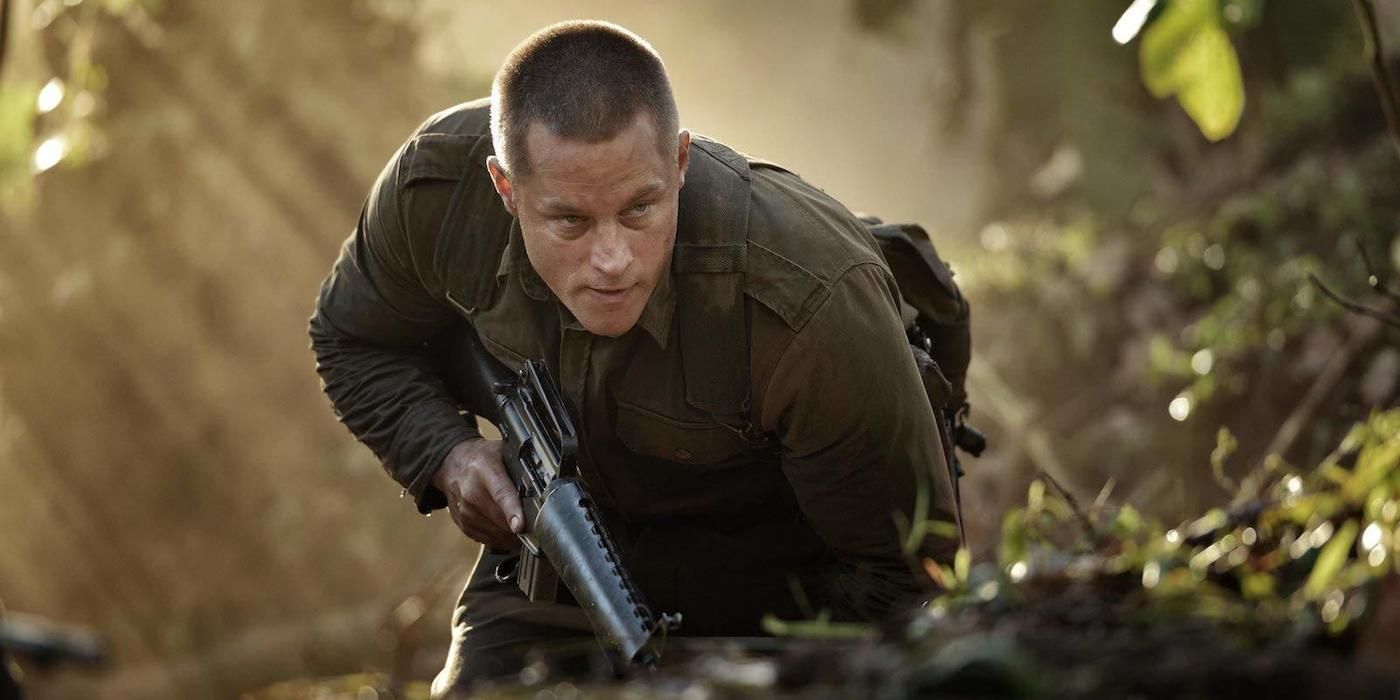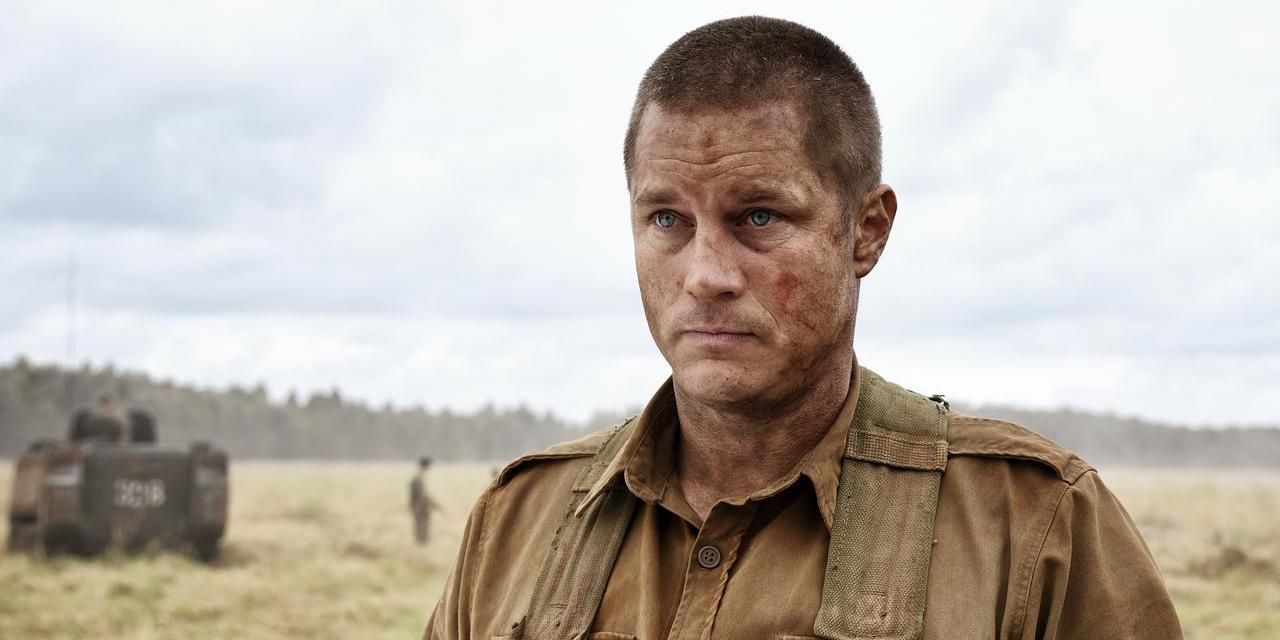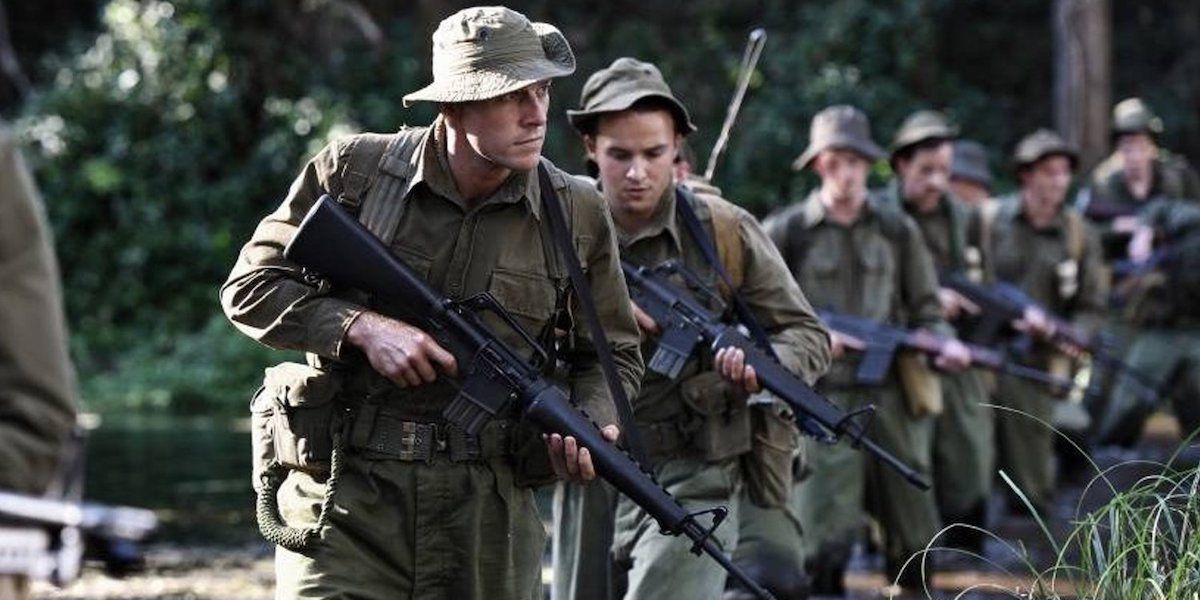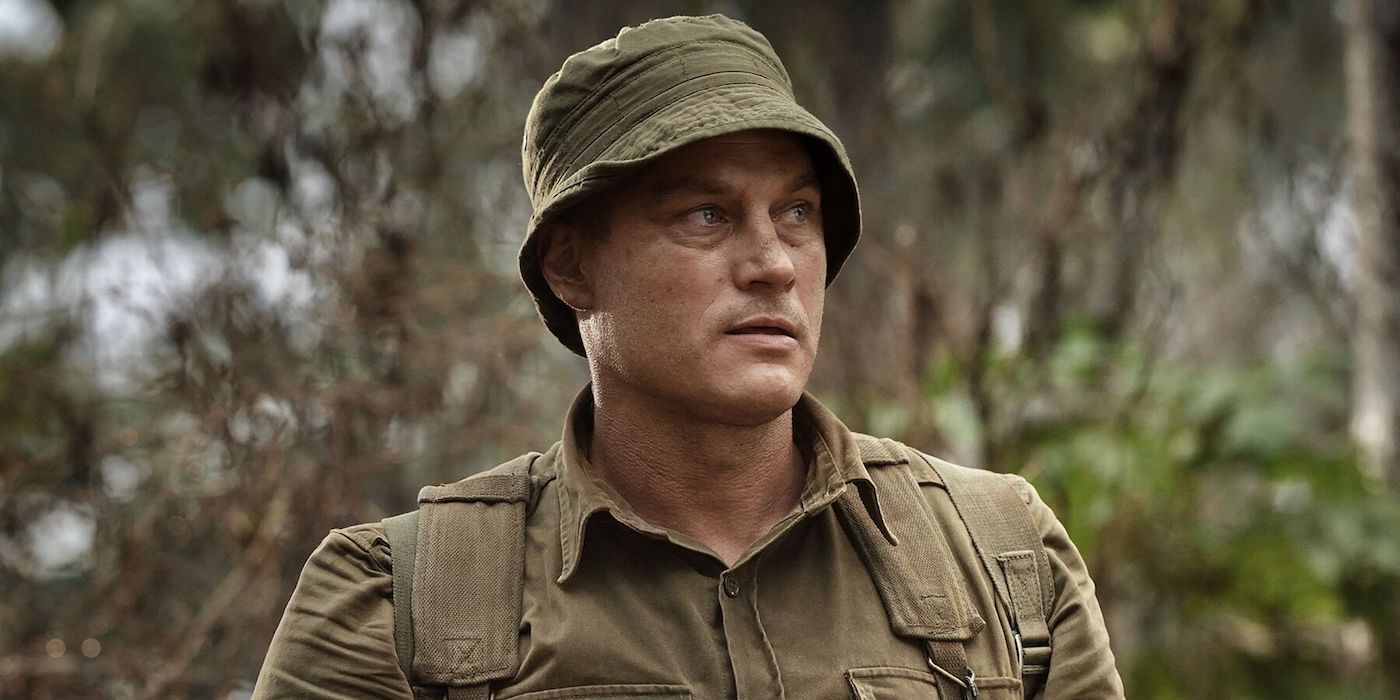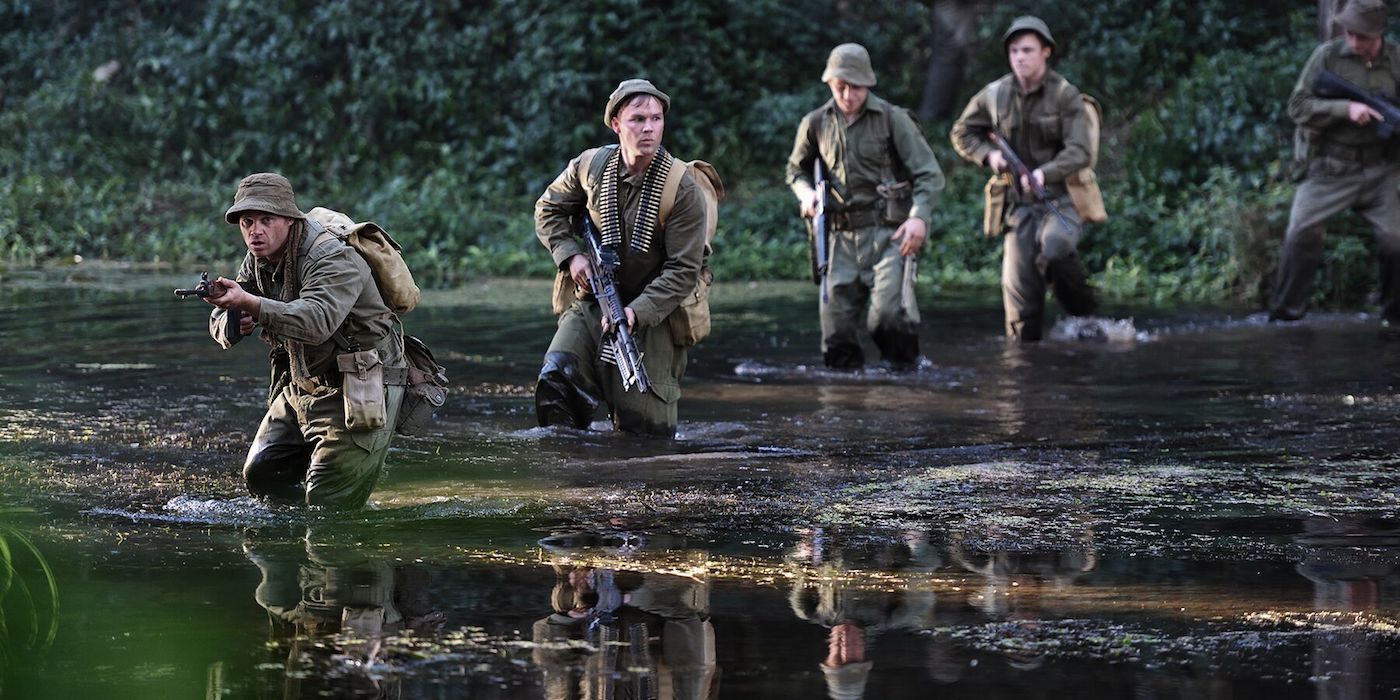Though it's remembered as a distinctly American folly, The Vietnam War was an international affair that damaged the collective psyche of a generation of young people across many different countries that found themselves entangled in that conflict. Australia was no different, and their role in the war is the subject of a new war film, Danger Close. Set during the Battle of Long Tan, the movie follows the young Australian and New Zealand soldiers who put their lives on the line to fight a controversial war that few, to this day, fully understand.
While promoting Danger Close, Travis Fimmel spoke to Screen Rant about his role in the film, and how he took up the challenge of playing Harry Smith, a leader who fought to protect the soldiers under his command. He discusses working from home in rugged Australia and wistfully muses about the prospect of making a Western one day.
Danger Close is available in theaters, on Digital, and On Demand now.
You're my third interview for this movie, Danger Close. I got to ask Luke Bracey and Daniel Webber about the politics of a war movie. There's some discourse online about how some war movies aren't political enough because they don't have, I don't know, Walter Cronkite condemning the war.
We're certainly not trying to make a political movie. It's a movie about mateship and a very important moment in Australian history. I'm very glad to be a part of it, and it was a great experience, a great learning experience.
I can only imagine. War movies are so distinct because Luke told me, "every war movie is an anti-war movie." You've got these young people with these whole lives ahead of them who go off to fight a war they don't necessarily understand, and some of them don't come back. That's so... Real, you know?
It's unbelievable. And the average age was 20 or younger, I think. I mean, what were you doing at 20 years old, Zak?
Gee, I was being a precocious plus-one to parties and movie screenings.
I was being an absolute moron! It's just unbelievable. Imagine being there at 20, going through that, seeing those things... The whole motto of those boys in that battle was that it wasn't about you, it was about your mate. You were protecting the guy next to you. In that way, it was all about mateship.
It's so intense, it's so dramatic, the film is done so well. And that Redgum song at the end, is just a perfect way to sum up what happened to these men, in those jungles, and to... I don't know, an entire generation of Western culture. Can you talk a little about how you were able to build those bonds, forge that mateship? I guess the easy answer is, "I did acting!" But I imagine there's a little more to it than that, right?
I think we all knew it was an important story to be told. A lot of it was in the writing. We were all Australian blokes, and a lot of the kids were really young. Just imagining being in that situation, doing what you have to do and protecting the guy next to you, and trying to get everybody home... For me, specifically, my character is more about... He didn't care if he was liked or not. He only cared about getting these kids home to their families.
This is the first time I've gotten to talk to you, but I know a bit of your legend. Many years ago, before I had, well, any job, I went to a party for the pilot episode of Vikings, and you weren't there, but you recorded a hilarious video message that played in front of the screening. And I recently interviewed Mark Steven Johnson for Finding Steve McQueen.
He's a great bloke, Mark!
And we talked about you a bit, and how you're such a jolly, easy-going fella.
But I'm crying underneath. (Laughs)
But you play an authoritative, no-nonsense leader who's in charge of the lives and deaths of the young men under his command. Is that particularly difficult, or do you approach any role the same way, regardless of whether it's super intense or relatively chill?
I don't know, like any actor, you've just gotta make it real for yourself. Obviously, the characters become very important you, whether you use substitutions or whatever your method is. You end up caring a lot about the other people in the script, and you would do anything to make them okay, or help them get through their life. I think that's where my passion comes from.
Did you choose to use any firsthand sources about Harry Smith? Did you get to meet him at all?
I got to meet him a couple of times. But it was sort of... The script was there and the war was there, so I wasn't trying to copy him. I wasn't trying to do an impression of Harry. It was an impression of the situation he was in, and a lot of the dialogue was true to what he said and that sort of stuff. I can't do impressions, especially of someone like that. I don't know, he's a very complicated guy. There's only one Harry Smith in the world. Hopefully, I didn't upset him.
I can't imagine that you did, but you can never tell, right?
There's one thing somebody told me he said: "I never took my hat off." (Laughs)
I want to know the difference between working in Australia versus Hollywood. Luke and Daniel gave me interesting and different answers, so I'm wondering what your take is on that dynamic?
We all want to work at home, you know? It's where we're from and what we're used to. But there's only 20 or 22 million people there, viewers to watch stuff. So you've gotta really make a low-budget film to get your money back over there, you know? But America's been great to all us Aussies! It's just so enjoyable to go home. We were in Queensland for three or four months and it was a great experience.
I got to talk to this cool guy, Jack Randall, and we chatted about the misconception, or how it's not a misconception, that Australia is full of monsters that want to eat you.
Yeahhhhhhhh, well, it depends where you are. I grew up in the country, but I think 95% of the people in the city have never seen a snake, you know?
But so much of it is untamed, right?
For sure. I think we're 80 or 85% desert in the country, and many people live out there. There's plenty of room for things to grow out there. There's a lot of stuff that can kill you. In the city, though, the worst thing is probably the spiders.
Oooh. See, we've got cockroaches in New York... I don't know what I'd rather deal with.
We've got roaches... But the funnel-web spider... That's pretty deadly.
Oh boy. Nope. Nope. Let's get back to the movie. When you were a boy learning about the Vietnam War in school, did you study the Battle of Long Tan?
No, I actually didn't. The generation before me did, but I didn't. I don't know, it's more like... It's why films are so influential. I learned about Vietnam through films, American films. It was kind of exciting to do an Australian film from their point of view. It feels like this film could be shown to kids at school. Kids are so influenced by what they see, you know? In movies and all that stuff. It feels like this would be good to show to young Australian kids... Not too young. It's still very violent. But to educate them, you know? To show them this is part of their history, their grandpa's history. I think a kid is more influenced by what they see on TV.
Absolutely. The whole reason I have this job is because I learned so much more from the movies then I ever did in school... Which my mom didn't love, but that's how it worked out.
It's funny how that works out, right?
Would you say you got your education through art, or were you scholastically inclined as a boy?
A bit of both. There wasn't much on TV or at school that interested me, other than cowboy films. I really loved the cowboy films. I reckon I wanted to be in the great outdoors, doing that stuff.
Have you done a Western yet?
No, but I'd love to do one! I think a lot of actors want to do it. It would be amazing to do a Western.

